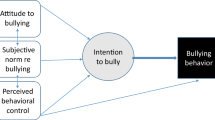Abstract
Although undergraduate students are exposed to ethical issues through class assignments, discussions, and readings, they typically do not have first hand experience with business dilemmas. Student opinions on ethical standards and behavior in American business have received scant attention in the literature. The purpose of the study is to provide additional information to both educators and organizations about the ethical perceptions of students. Furthermore, the study contrasts student responses to business and community leaders' responses obtained in a prior study conducted by Touche Ross (1988). The findings from this study are based on an opinion survey about ethics in American business, completed by 476 liberal arts and business students attending a private, religiously affiliated college in New York State. The data indicate numerous differences in perceptions between students and business and community leaders. Differences were also found when students were classified by school (Arts & Science versus Business) and by gender. Overall, students appear to place a strong value on education. Students are the source of new entrants to the business world and the foundation for ethical structures being built by organizations. The findings from this study should assist both educators and employers in the development of necessary programs to maximize the ethical potential of their constituents.
Similar content being viewed by others
References
Akaah, I.: 1989, ‘Differences in Research Ethics Judgments Between Male and Female Marketing Professionals’, Journal of Business Ethics 8, 375–381.
Aspen Institute Initiative for Social Innovation through Business: 2001, ‘Where will they Lead? MBA Student Attitudes About Business and Society’, Executive Summary online at www.aspeninst.org/isib/pdfs/sas.pdf.
Astin, A. W: 1977, Four Critical Years: Effects of College on Beliefs; Attitudes; and Knowledge (Jossey-Bass Publishers, San Francisco).
Astin, A. W. and G. Erlandson, (eds): 1997, What Matters in College: Four Critical Years Revisited (Jossey-Bass Publishers, San Francisco).
Procario-Foley, E. G. and D. F. Bean: 2002, ‘Institutions of Higher Education: Cornerstones in Building Ethical Organizations’, Teaching Business Ethics 6, 101–116.
Clikeman, P. and S. Henning: 2000, ‘The Socialization of Undergraduate Accounting Students’, Issues in Accounting Education 15(1): 1–17.
Cohen, J. R., L. W. Pant and D. J. Sharp: 2001, ‘An Examination of Differences in Ethical Decision-Making Between Canadian Business Students and Accounting Professionals’, Journal of Business Ethics 30(4), 319–336.
Conaway, R. N. and T. L. Fernandez: 2000, ‘Ethical Preferences among Business Leaders: Implications for Business Schools’, Business Communication Quarterly 63(1), 23–38.
Cooperative Institutional Research Project: 2002, www.gseis.ucla.edu/heri/01_press_release.htm (Jan. 28, 2002, CIRP Press Release).
DuPont, A. M. and J. S. Craig: 1996, ‘Does Management Experience Change the Ethical Perceptions of Retail Professionals: A Comparison of the Ethical Perceptions of Current Students With Those of Recent Graduates?’, Journal of Business Ethics 15, 815–826.
Fisher, J., S. Fullerton and G. Woodbine: 1999, ‘Today's Ethical Perspective of Tomorrow's Business Leaders’, Irish Marketing Review 12, 48–54.
Frank, R. H. and T. Gilovich: 1993, ‘Does Studying Economics Inhibit Cooperation?’, Journal of Economic Perspectives 7(2), 159–171.
Harris, J. R.: 1990, ‘Ethical Values of Individuals at Different Levels in the Organizational Hierarchy of a Single Firm’, Journal of Business Ethics 9, 741–750.
Hosmer, L. T.: 1999, ‘Somebody out there doesn't like us: A Study of the Position and Respect of Business Ethics at Schools of Business Administration’, Journal of Business Ethics 22(2), 91–106.
Kelley, S. W., O. C. Ferrel and S. J. Skinner: 1990, ‘Ethical Behavior Among Marketing Researchers: An Assessment of Selected Demographic Characteristics’, Journal of Business Ethics 9, 681–688.
Laczniak, G., M. Berkowitz, R. Brooker and J. Hals: 1995, ‘The Ethics of Business: Improving or Deteriorating’, Business Horizons 38, 39–47.
Libby, B. and V. Agnello: 2000, ‘Ethical Decision Making and the Law’, Journal of Business Ethics 26(3), 223–232.
Lysonski, S. and W. Gaidis: 1991, ‘A Cross-Cultural Comparison of the Ethics of Business Students’, Journal of Business Ethics 10, 141–150.
Net Impact at www.net-impact.org.
O'Leary, C. and D. Cotter: 2000, ‘The Ethics of Final Year Accountancy Students: An International Comparison’, Managerial Auditing Journal 15(3): 108–115.
Overell, S.: 1999, ‘Business Schools Ignore the JR Factor’, Supply Management 4(12), 11.
Pascarella, E. T. and P. T. Terenzini: 1991, How College Affects Students: Findings and Insights from Twenty Years of Research (Jossey-Bass Publishers, San Francisco).
Peterson, D., A. Rhoads and B. Vaught: 2001, ‘Belief in Universal Ethics: Gender Differences, Influence of Referent Others, and Ethical Beliefs of Business Professionals’, Business and Professional Ethics Journal 20, 47–62.
Robin, D. and L. Babin: 1997, ‘Making Sense of the Research on Gender and Ethics in Business: A Critical Analysis and Extension’, Business Ethics Quarterly (October), 68–90.
Ryan, L. V. and M. A. Ciavarella: 2002, ‘Tapping the Source of Moral Approbation: The Moral Referent Group’, Journal of Business Ethics 38(1/2), 179–192.
Smith, A. and V. Rogers: 2000, ‘Ethics-Related Responses to Specific Situation Vignettes: Evidence of Gender-based Differences and Occupational Socialization’, Journal of Business Ethics 28(1), 74–86.
Stevens, B: 2001, ‘Hospitality Ethics: Responses From Human Resource Directors and Students to Seven Ethical Scenarios’, Journal of Business Ethics 30(3), 233–242.
St. Pierre, K., E. Nelson and A. Gabbin: 1990, ‘A Study of the Ethical Development of Accounting Majors in Relation to Other Business and Non-Business Disciplines’, The Accounting Educators' Journal (Summer), 23–35.
Touche Ross: 1988, Ethics in American Business An opinion survey of key business leaders on ethical standards and behavior.
Walton, C: 2001, ‘Character and Integrity in organizations: The Civilization of the Workplace’, Business and Professional Ethics Journal 20, 105–128.
Author information
Authors and Affiliations
Rights and permissions
About this article
Cite this article
D'Aquila, J.M., Bean, D.F. & Procario-Foley, E.G. Students' Perception of the Ethical Business Climate: A Comparison With Leaders in the Community. Journal of Business Ethics 51, 155–166 (2004). https://doi.org/10.1023/B:BUSI.0000033609.90950.54
Issue Date:
DOI: https://doi.org/10.1023/B:BUSI.0000033609.90950.54




